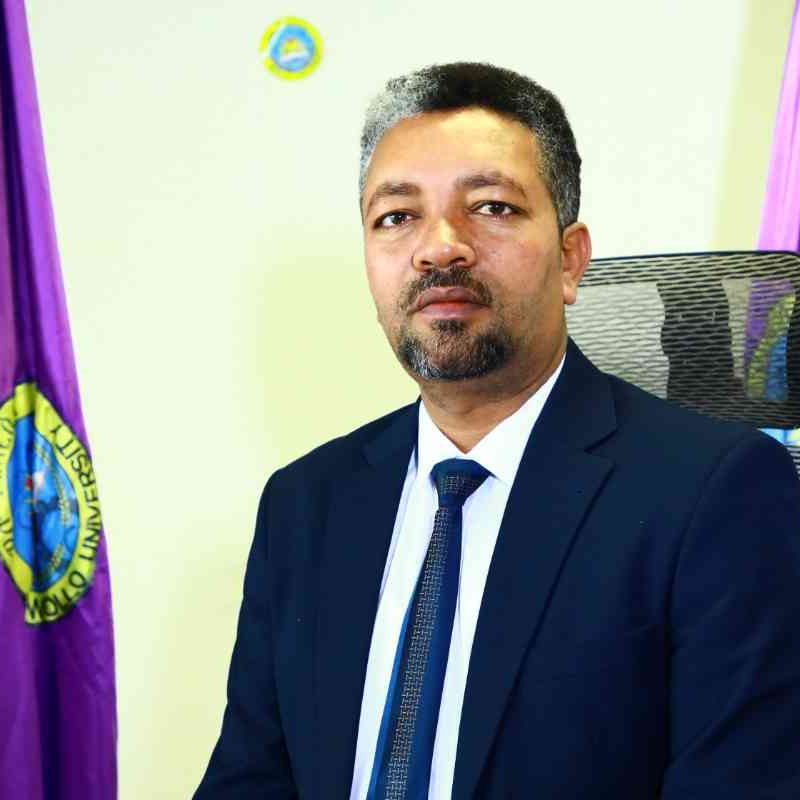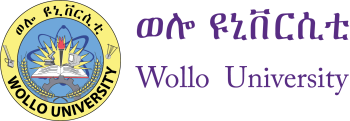
Birhan Asmame Mihretu (PhD)
Acting Academic Affairs Vice President
Office of the Academic Affairs Vice President
The Office of the Academic Affairs Vice President (AAVP) plays a pivotal role in advancing Wollo University's mission as an applied science university. Reporting directly to the president, it provides executive leadership in academic planning, strategic direction, policy development and guidance, and hands-on oversight to ensure the delivery of high-quality, practice-oriented education across all colleges, institutes, schools, and academic units. The office is also dedicated to fostering innovation, industry relevance, and technical excellence in every aspect of the university’s academic life.
Core Responsibilities:
(Reflecting the Vision of an Applied Science University)
- Works closely with the University President and Vice Presidents to shape a forward-looking academic vision rooted in practical education and real-world problem solving.
- Sets academic priorities and long-term plans that reflect the university’s strategic direction, with a strong emphasis on applied knowledge and national development needs.
- Oversees the development and delivery of undergraduate and postgraduate programs that combine theoretical understanding with hands-on learning, aligned with both national priorities and global industry standards.
- Ensures coordination of academic leadership across all colleges, schools, institutes and departments, maintaining institutional coherence while encouraging innovation in applied learning.
- Develops and enforces clear academic policies, procedures, and standards that support a structured, skills-oriented learning environment.
- Leads regular academic program reviews to keep curricula responsive, up-to-date, and relevant to the rapidly changing demands of the labor market and technological advancement.
- Manages the recruitment, promotion, and professional development of academic and technical staff, ensuring they are well-equipped to deliver practice-based education.
- Ensures that all academic staffing decisions—including hiring, promotion, and evaluation—adhere to transparent and merit-based university procedures.
- Oversees the allocation of academic budgets and resources, making sure programs are well-supported to deliver quality, hands-on teaching and applied learning outcomes.
- Supports academic units in developing operational plans, monitoring performance, and fostering innovation—especially in teaching methods, assessment, and practical training.
- Tracks and evaluates academic performance across the university, promoting continuous improvement and sharing of best practices in applied education.
- Ensures that graduates are equipped with the technical knowledge, practical skills, and professional ethics required to contribute effectively to national development and the workforce.
- Promotes a student-centered and inclusive academic environment, with a strong focus on excellence in hands-on, skills-based teaching—fully aligned with the mission of an applied science university.
- Builds strong, collaborative partnerships with industries, government agencies, and technical institutions to enhance learning opportunities, internships, and graduate employability.
- Leads institution-wide academic planning to ensure the university remains aligned with national development goals, labor market needs, and future-oriented innovation.

 Phone: +2510333123613
Phone: +2510333123613 Email: birhan.asmame@wu.edu.et
Email: birhan.asmame@wu.edu.et Office Hours: Monday to Friday, 8:00 AM – 5:00 PM (East Africa Time)
Office Hours: Monday to Friday, 8:00 AM – 5:00 PM (East Africa Time)